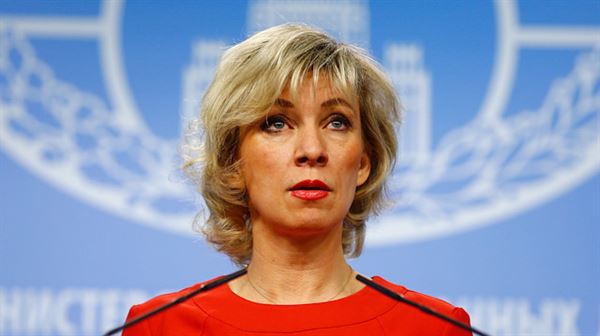Russian Foreign Ministry spokeswoman Maria Zakharova said on Thursday the protests in Iran have been caused by U.S. sanctions against the country. Spe
Russian Foreign Ministry spokeswoman Maria Zakharova said on Thursday the protests in Iran have been caused by U.S. sanctions against the country.
Speaking at a news conference in Moscow, Zakharova said the decisions, taken by the Iranian leadership about raising petrol prices, were provoked by Washington’s pressure on Tehran.
“All this was provoked by the absolutely illegal and massive sanctions pressure that the U.S. is exerting on this country.
“And, in general, because of Washington’s actions, the fundamental human rights and legitimate interests of the Iranian population to freely receive food, medicines and all kinds of necessary products are violated,” she said.
Demonstrations broke out across Iran last week after the government imposed petrol rationing and raised fuel prices at least 50%.
At least 100 banks and dozens of shops have been set ablaze during the protests, the semi-official Mehr news agency said, quoting security officials.
Although there are no official figures on the arrests, the Fars news agency said more than 1,000 protesters have been detained.
Also speaking about a recent military purchase spat between Egypt and the U.S., Maria Zakharova denounced the American threats of sanction on this country.
She said the U.S. threats to sanction over purchase of Russian weapons is an example of “aggressive behavior” and “unfair trade”.
The spokeswoman insisted that the best way to compete on the arms sales market is to prove the competitive advantages of goods and not blackmailing.
“The method of threats discredited itself completely. Trying to put pressure on other countries, the U.S. only undermines their confidence and make the world once again think about the need to abandon trade payments in U.S. dollars,” she said.
After years of fruitless efforts to buy U.S. F-35 fighter jets, Cairo turned to Moscow and in March sealed a contract with Russia on delivery of the Russian analogue of F-35, Su-35 fighter jets.
The move was protested by Washington, and on Nov. 13, U.S. Secretary of State Mike Pompeo and Defense Secretary Mark Esper warned Egypt that by buying Russian Su-35 aircrafts, the country risks to fall under Countering America’s Adversaries Through Sanctions Act suggesting slapping sanctions on buyers of Russian arms.
